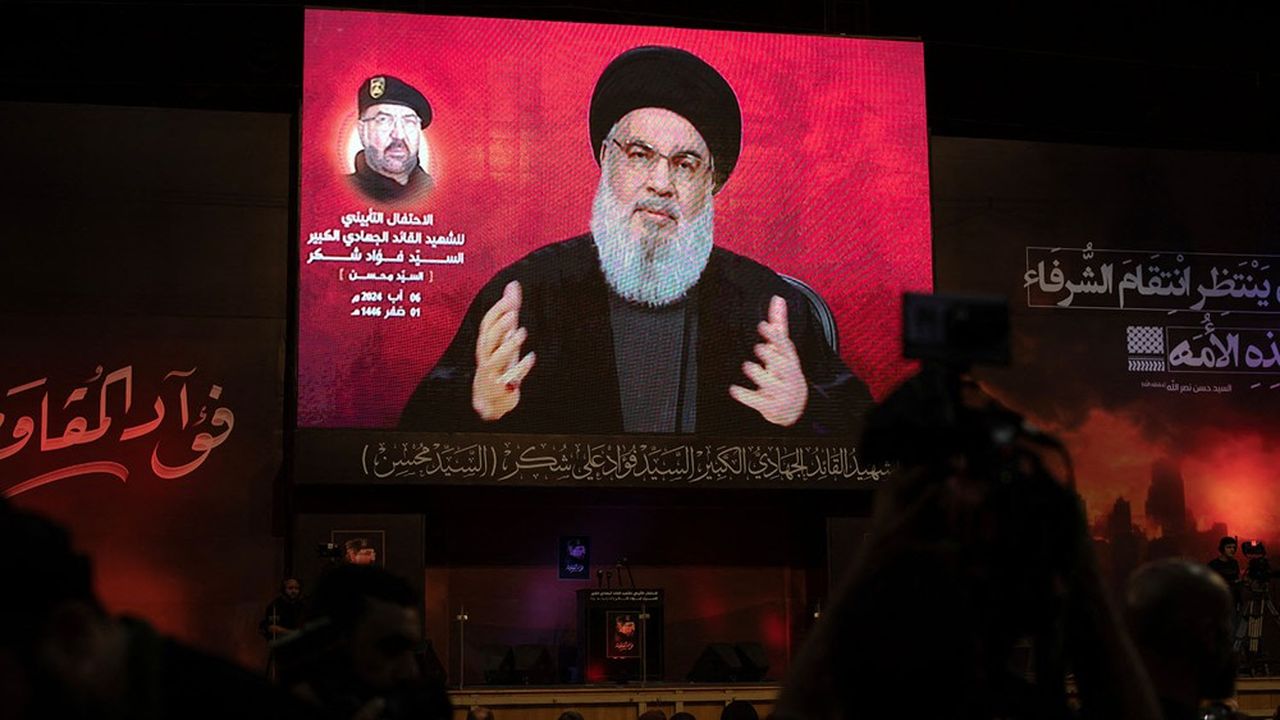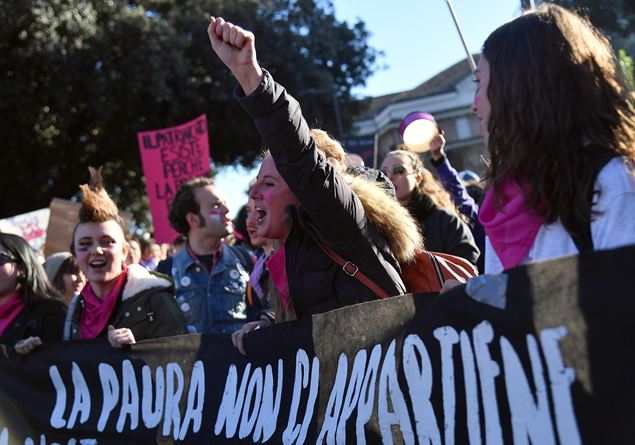
After coming within a whisker of a full-blown war on Sunday, Israel and Hezbollah seemed determined on Monday not to fight for the moment. Both protagonists, who were careful not to cross too many red lines, declared victory.
“The result is very positive,” said Yoav Gallant, the Israeli Minister of Defense. According to him, the massive preemptive attack launched by a hundred planes against Hezbollah targets in Lebanon made it possible to prevent the firing of “half, or even two-thirds” of some 6,000 rockets that the Lebanese Shiite militia planned to launch towards Israeli territory.
The IDF spokesman, for his part, denied that Hezbollah drones had hit the base housing the highly prestigious “unit 8,200,” which specializes in electromagnetic intelligence, or the headquarters of the Mossad, the secret service, two targets located in the suburbs of Tel Aviv. “All drones targeting critical sectors were intercepted,” the spokesman said. The army thus contradicted Hassan Nasrallah, the leader of Hezbollah, who had welcomed the strikes against these targets.
Avoid a general explosion
According to Israeli military officials, Hezbollah decided at the last moment not to launch drones or high-precision missiles towards the Tel Aviv region, “settling on launching two to three hundred rockets into northern Israel.” “Nasrallah thus wanted to avoid a general explosion, knowing the enormous damage that Israel is capable of inflicting on Lebanon,” an Israeli diplomat explained. The Hezbollah leader had nevertheless promised on multiple occasions to inflict unprecedented reprisals, following the assassination by Israel in Beirut in July of Fouad Chokr, the leader of Hezbollah’s military wing.
On the Israeli side, military commentators point out that Prime Minister Benjamin Netanyahu wants to avoid Israel being forced to fight on two fronts: in the Gaza Strip against Hamas and in the north with Hezbollah, whose arsenal of missiles, drones and rockets is far superior to that of the Palestinian Islamist movement.
Israeli army personnel shortage
The IDF is indeed suffering from a shortage of personnel, to the point that 15,000 reservists under the age of 35, who had not been called up for military service for years, are going to be mobilized. In addition, the United States is exerting incessant pressure to prevent the scenario of a regional war, which would involve not only Israel and Hezbollah, but also Iran, which claims to want revenge for the elimination attributed to Israel on July 31 of Ismail Haniyeh, the political leader of Hamas, in the heart of Tehran. For the moment these threats have not been followed up.
After Sunday’s alert, a certain calm was perceptible in Israel. The Tel Aviv Stock Exchange climbed by more than 2% on Monday morning and the shekel, the Israeli currency, recovered against the dollar and the euro. In total, the preventive operation carried out in less than half an hour by a hundred Israeli planes cost 120 million dollars, of which 100 million was for the bombs and the rest for the flight hours.
On the Palestinian front, however, tensions are not abating on the ground. Over the weekend, five Israeli soldiers and more than 70 Palestinians were killed in the Gaza Strip. Despite this, negotiations on a ceasefire are continuing in Cairo.
According to Aviv Issacharoff, a military commentator for the Israeli daily Yediot Aharonot, Hezbollah’s refusal to engage in a total war, which Yahya Sinwar was counting on, could convince the Hamas leader to show “flexibility” and to give up rejecting a compromise proposal put on the table by the United States. For the moment, Benjamin Netanyahu is also sticking to positions that could ruin everything.





